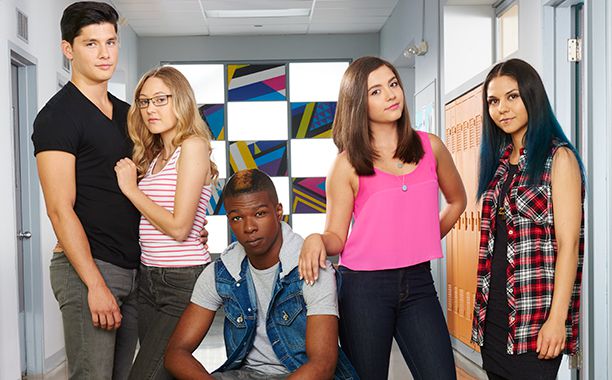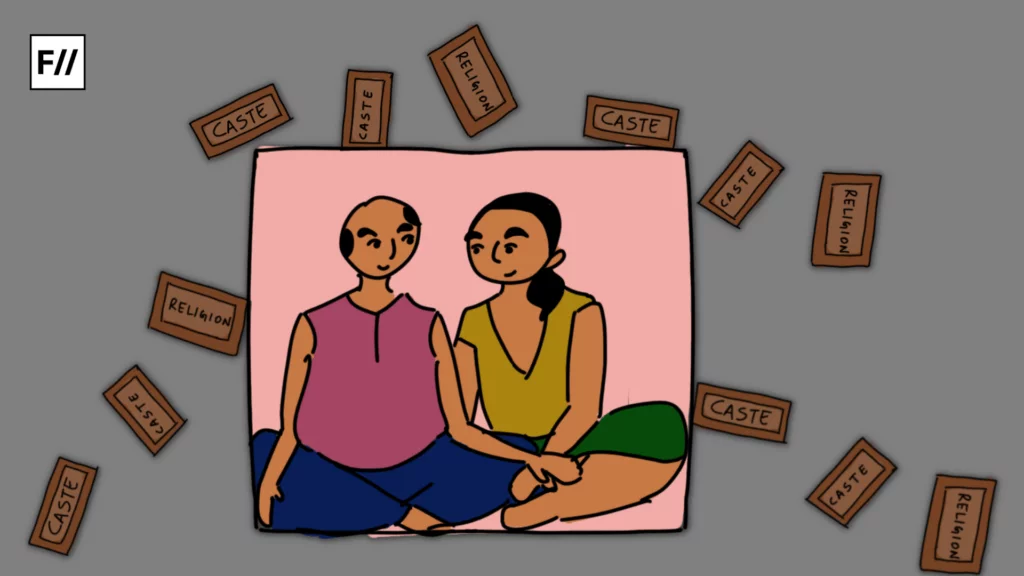Degrassi: Next Class is a Canadian teen drama television series produced by Linda Schuyler and Kit Hood in 1979. It is the fifth instalment in the Degrassi franchise. It is a direct sequel to Degrassi: The Next Generation, and it features many of the same characters from the final seasons of the prequel, as well as some new ones. Linda Schuyler, Stephen Stohn, Sarah Glinski, and Matt Huether created and executive produced the series, which was produced by DHX Studios Toronto (a subsidiary of DHX Media).
Degrassi: Next Class can be seen as an everyday TV show focused a bunch of high schoolers navigating between romance and academics and all that goes in between. What sets Degrassi aside is the diverse representation on screen to identify with the modern day problems of young adulthood. Although the real life cast may not align with their on screen choices and orientations, the sheer presence and communication on these topics are necessary.
The series talks about sexuality and the path of exploration through the characters navigating their personal dilemma. For instance, one of the protagonists Trista, openly identifies as queer while on the other hand, Zoe his best friend, is struggling to accept her sexuality and speak about it to herself, her friends and her family. She fears religious codes and even goes on to date someone to prove she is not gay until they realise their sexual orientation.
It is not surprising when I hear people reacting to mental health illnesses as a ‘trend’, ‘delusion’ or an ‘excuse’. The reason the current generation is a major marker of mental health illnesses is the understanding and acknowledgement of historical oppression and the aftermath of the trauma
The series also raises the question of pronouns and how it is vital to acknowledge and use them for the individuals. Yael, speaks about how she does not see herself fitting into the binary of being a boy or a girl, and thus uses the pronouns they/them. When she is questioned and shamed by her partner for destroying their friendship/relationship by not being ‘normal’ she iterates how there is no ‘normal’. The heternormative patriarchal society instils boxes of gender characteristics that individuals are expected to follow.
Anyone who slightly does not fit into this category is shamed, bullied, stereotyped and teased. Individuals who do identify with this binary are majorly invisibilised with their choices, stories and orientations not taken into account. Who decides what is normal? Who decides how individuals should function?

Another important theme that the Degrassi series incorporates is mental health and the various way it manifests in a person’s life. Trauma and abuse affect an individual immediately, but leave long-lasting effects that change dynamics in personal and professional spaces. Miles, who struggles with the idea of love and bisexuality finds himself addicted to drugs so much that he feels he can only function ‘perfectly’ under their effect.
After an accident, he finds himself in a hospital with a diagnosis and therapy to get through the aftermath of his addiction. What might seem unusual is the extremely supportive family and friend group which is not naturally available in the real world, but maybe that is what we need to be to one another. Mental health and the discussions surrounding it have always been taboo, especially in India. Although the topic and talks on it are gaining momentum, it is specifically located with privilege.
Also read: Euphoria: HBO Series Underlines That Platonic Friendship Is The Only True Teenage Love
It is appalling how several reviews of the show dismiss it as dramatic or pointless. The sheer action of noticing someone changing either in their physical looks or behavioural demeanour is very important. Communicating is important. Similarly, conversations about sex are taboo in our society. There is always a personal fear instilled by the strict regime at home and religious morality which inhibits conversations about sex and sexual health
It is not surprising when I hear people reacting to mental health illnesses as a ‘trend’, ‘delusion’ or an ‘excuse’. The reason the current generation is a major marker of mental health illnesses is the understanding and acknowledgement of historical oppression and the aftermath of the trauma. People are speaking up and these accounts are what matter.
The rat race, technological globalisation, religious and gender oppression, rising unemployment and cut throat education spaces have led students to live a life in a shell. This is further detrimental to those from oppressed backgrounds where acknowledging mental health is a big task in itself.
Degrassi does not use a condescending or sarcastic tone to seek help. Counselling and therapy are seen as readily available. The chronicles of teenage love along with self-exploration, abandonment issues and emotional support are well-established. The series also speaks up about the personal choice to follow religious sacraments without being overpowered by social stereotypes.

In an interview with Vice, Linda Schuyler, one of the co-creators of the Degrassi franchise and a co-founder of Epitome Pictures, states, “We realised that the kids we’re talking to today are a new generation from the kids we talked to in 2001 when we came out with Degrassi: The Next Generation. Then, we were very much talking to millennials. There’s a new generation, Generation Z, who weren’t even born when we started that show. That was a very sobering fact…We’ve done a lot of research into Generation Z and decided we need a reboot.”
It is appalling how several reviews of the show dismiss it as dramatic or pointless. The sheer action of noticing someone changing either in their physical looks or behavioural demeanour is very important. Communicating is important. Similarly, conversations about sex are taboo in our society. There is always a personal fear instilled by the strict regime at home and religious morality which inhibits conversations about sex and sexual health.
Degrassi: Next Class is a new-age fictional drama that has tried to incorporate issues affecting the younger generations of today. In a world so drastically affected by violence, oppression, and mental health stigma, shows addressing such themes must sure be critiqued so we can do better, but should not entirely be dismissed.
Also read: ‘Falling In Love Is Probably Always Teenage In Ways’: Anjali Joseph, Author Of ‘Keeping in Touch’
Ankita Kundu is pursuing Masters in Women’s Studies from the Tata Institute of Social Sciences, Mumbai. She writes poetry and paints in her free time. Her areas of interest include women’s rights, sexuality and socio-economic conditions, art and representation of women
Featured Image Source: Project Derailed




